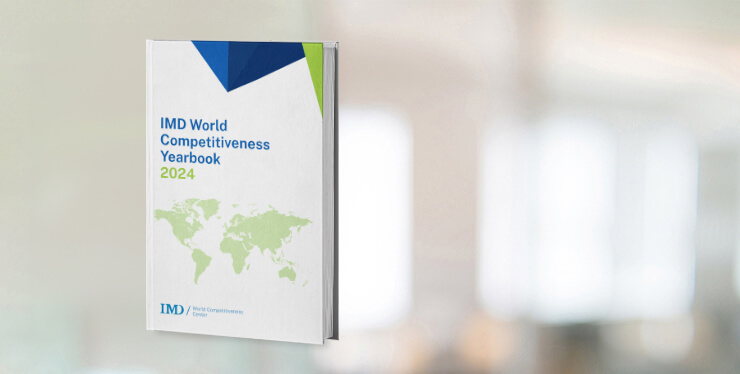
Surviving a crisis – Why preparation is key to resilience
Take the example of the auto sector. Carmakers have long known the importance of de-emphasizing mechanical engineering. They are aware of the need to increase their software capabilities for self-driving vehicles.
But during the pandemic, this trend has sped up. Investors have come to love Tesla. It’s worth more than Toyota, Volkswagen, Daimler, and Honda combined, making it the most valuable car company in the world.
However, this comparison with other traditional carmakers is misleading. It misses the fact that the market disproportionately favors companies that make electric vehicles.
That’s right: The world’s first, fourth, and fifth most valuable car makers are all “electric first.” Tesla, BYD, and NIO didn’t begin building internal combustion engines. They started with batteries. And BYD (backed by Warren Buffett) and NIO (listed on the New York Stock Exchange) are both headquartered in China.
The banking sector is showing a similar trend. Retail banks have long known that they must evolve away from a physical branch network of human bankers. They understand the need to advance mobile services based on artificial intelligence. These are long-term trends that have been articulated, researched, and generally accepted.
COVID-19 has accelerated everything. When people shop at home, electronic payments take off. When people stop visiting banks, they manage their finances online.
Square and PayPal are the obvious winners here. But incumbents such as Mastercard and Visa are also faring well.
At IMD’s Center for Future Readiness, we have been tracking how ready financial institutions are for a changing future. Here’s a glimpse into our latest 2021 ranking of selected players.
To calculate the overall composite score, we used only publicly available, hard market data that has objective rules. We avoided soft data, such as polls or surveys. We measure fundamental drivers that fuel innovation, including the health of a company’s current business, the diversity of its workforce, its governance structure, the investments it has made against its competitors, and the speed of its new product launches.
This leads to an obvious question: How have Mastercard and Visa prospered when the “plastic card” has been deemed irrelevant in the age of Apple Pay and Google Wallet? This brings us to the idea of “frenemies.” That is, if you can’t beat your disruptors, let them join you.
Mastercard and Visa were quick to realize they can’t outrun fintech upstarts or tech giants. Instead, they must partner with their rivals. Make your own infrastructure useful to your enemies so when they prosper, you do too.
That’s why Mastercard and Visa are working with PayPal, Apple, and Google to create new market opportunities. As I’ve argued here, they make this type of collaboration easy by investing in a wide range of application programming interfaces (APIs). And they make sure these APIs are both secure and easily accessible. This way, tech giants like Apple and cryptocurrency exchanges like Coinbase have both found valuable partners in Mastercard and Visa. In other words, Mastercard and Visa reinvented themselves by de-emphasizing their original offering – their own plastic cards.
This shouldn’t be a surprise. It affirms the wisdom of Warren Buffett, who, in a letter to our shareholders in 2001, said: “You only find out who is swimming naked when the tide goes out.” He was referring to the economic consequences of 9/11. The aftermath of the terrorist attacks exposed the weak players, especially within the financial sector.
Today, the pandemic has exposed firms across a wider swath of industries. It has had a much deeper and longer-lasting impact. Companies that underestimated or ignored the speed of digitization are now realizing the enormous cost of such ignorance.
So yes, resilience matters. And it’s based on your readiness for future capabilities. Some companies have been aggressive in their investment during good times. They don’t just talk about digital transformation – they allocate resources aggressively, set goals, and then deliver.
At first glance, this does not seem relevant to crisis management, but it is. When disaster struck, these companies were able to kick into high gear to pivot. For example, if you have invested in a digital supply chain, you know it’s easier to shift suppliers. You know what’s missing when you have all the information at your fingertips. If you don’t, you are probably calling local managers on the phone, asking them to fill out Excel spreadsheets by hand.
Similarly, if you have invested in digital sales and marketing, it’s easier to shift your market focus. You can quickly estimate the drop in demand. You can spend your time strategizing the right move. But if you’re doing stuff manually, it’s just hard to cope.
This is how the great divergence arrives. By the time the crisis has passed, those who survive unscathed will move on to their next conquest. That’s why chance favors the prepared.
Howard Yu is the author of LEAP: How to Thrive in a World Where Everything Can Be Copied (PublicAffairs, June 2018), and LEGO professor of management and innovation at IMD. He is the Program Director of IMD’s Future Readiness Strategy program.
In 2015, Yu was featured in Poets & Quants as one of the Best 40 Under 40 Professors. He was shortlisted for the 2017 Thinkers50 Innovation Award, and in 2018 appeared on the Thinkers50 Radar list of 30 management thinkers “most likely to shape the future of how organizations are managed and led.” Yu received his doctoral degree in management from Harvard Business School.
Research Information & Knowledge Hub for additional information on IMD publications
The case study delves into strategic transformation and leadership transitions at Unilever since 2009. Unilever has been an industry leader of busi...
The payment processing industry in Europe had operated in largely the same way for decades. A standard system of financial processing and clearing ...
The case study examines recent aviation safety concerns at Boeing, focusing on manufacturing issues, leadership decisions and regulatory oversight....
The case is seen through the eyes of the newly appointed supply chain director at a cosmetics company based in Berlin. The general manager has task...
Research Information & Knowledge Hub for additional information on IMD publications
Research Information & Knowledge Hub for additional information on IMD publications
Research Information & Knowledge Hub for additional information on IMD publications
Research Information & Knowledge Hub for additional information on IMD publications
Research Information & Knowledge Hub for additional information on IMD publications
Research Information & Knowledge Hub for additional information on IMD publications
in I by IMD 24 June 2024
Research Information & Knowledge Hub for additional information on IMD publications
Research Information & Knowledge Hub for additional information on IMD publications
Published by International Institute for Management Development ©2024
Research Information & Knowledge Hub for additional information on IMD publications
Research Information & Knowledge Hub for additional information on IMD publications





